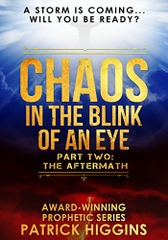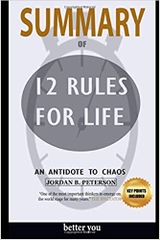-
-
-
Tổng tiền thanh toán:
-
-
Thông tin
-
Tìm sách theo yêu cầu
With the born storyteller's command of narrative and imaginative approach, Leonard Mlodinow vividly demonstrates how our lives are profoundly informed by chance and randomness and how everything from wine ratings and corporate success to school grades and political polls are less reliable than we believe.
By showing us the true nature of chance and revealing the psychological illusions that cause us to misjudge the world around us, Mlodinow gives us the tools we need to make more informed decisions. From the classroom to the courtroom and from financial markets to supermarkets, Mlodinow's intriguing and illuminating look at how randomness, chance, and probability affect our daily lives will intrigue, awe, and inspire.
By showing us the true nature of chance and revealing the psychological illusions that cause us to misjudge the world around us, Mlodinow gives us the tools we need to make more informed decisions. From the classroom to the courtroom and from financial markets to supermarkets, Mlodinow's intriguing and illuminating look at how randomness, chance, and probability affect our daily lives will intrigue, awe, and inspire.
Product Details
- Paperback: 272 pages
- Publisher: Vintage; Reprint edition (May 5, 2009)
- Language: English
- ISBN-10: 0307275175
- ISBN-13: 978-0307275172
- Product Dimensions: 8 x 5.2 x 0.8 inches
- Shipping Weight: 8 ounces (View shipping rates and policies)
- Average Customer Review: 4.3 out of 5 stars See all reviews (273 customer reviews)
- Amazon Best Sellers Rank: #6,602 in Books (See Top 100 in Books)
- #1 in Books > Science & Math > Physics > Chaos Theory
- #3 in Books > Humor & Entertainment > Puzzles & Games > Math Games
- #3 in Books > Science & Math > Physics > Mathematical Physics
Editorial Reviews
Amazon.com Review
Amazon Guest Review: Stephen Hawking
Published in 1988, Stephen Hawking’s A Brief History of Time became perhaps one of the unlikeliest bestsellers in history: a not-so-dumbed-down exploration of physics and the universe that occupied the London Sunday Timesbestseller list for 237 weeks. Later successes include 1995’s A Briefer History of Time, The Universe in a Nutshell, and God Created the Integers: The Mathematical Breakthroughs that Changed History. Stephen Hawking is Lucasian Professor of Mathematics at the University of Cambridge.
--This text refers to an out of print or unavailable edition of this title.
Published in 1988, Stephen Hawking’s A Brief History of Time became perhaps one of the unlikeliest bestsellers in history: a not-so-dumbed-down exploration of physics and the universe that occupied the London Sunday Timesbestseller list for 237 weeks. Later successes include 1995’s A Briefer History of Time, The Universe in a Nutshell, and God Created the Integers: The Mathematical Breakthroughs that Changed History. Stephen Hawking is Lucasian Professor of Mathematics at the University of Cambridge.
 In The Drunkard’s Walk Leonard Mlodinow provides readers with a wonderfully readable guide to how the mathematical laws of randomness affect our lives. With insight he shows how the hallmarks of chance are apparent in the course of events all around us. The understanding of randomness has brought about profound changes in the way we view our surroundings, and our universe. I am pleased that Leonard has skillfully explained this important branch of mathematics. --Stephen Hawking
In The Drunkard’s Walk Leonard Mlodinow provides readers with a wonderfully readable guide to how the mathematical laws of randomness affect our lives. With insight he shows how the hallmarks of chance are apparent in the course of events all around us. The understanding of randomness has brought about profound changes in the way we view our surroundings, and our universe. I am pleased that Leonard has skillfully explained this important branch of mathematics. --Stephen Hawking
--This text refers to an out of print or unavailable edition of this title.
From Publishers Weekly
A drunkard's walk is a type of random statistical distribution with important applications in scientific studies ranging from biology to astronomy. Mlodinow, a visiting lecturer at Caltech and coauthor with Stephen Hawking of A Briefer History of Time, leads readers on a walk through the hills and valleys of randomness and how it directs our lives more than we realize. Mlodinow introduces important historical figures such as Bernoulli, Laplace and Pascal, emphasizing their ideas rather than their tumultuous private lives. Mlodinow defines such tricky concepts as regression to the mean and the law of large numbers, which should help readers as they navigate the daily deluge of election polls and new studies on how to live to 100. The author also carefully avoids veering off into the terra incognita of chaos theory aside from a brief mention of the famous butterfly effect, although he might have spent a little more time on the equally famous n-body problem that led to chaos theory. Books on randomness and statistics line library shelves, but Mlodinow will help readers sort out Mark Twain's damn lies from meaningful statistics and the choices we face every day.(May 13)
Copyright © Reed Business Information, a division of Reed Elsevier Inc. All rights reserved.
Copyright © Reed Business Information, a division of Reed Elsevier Inc. All rights reserved.
Most Helpful Customer Reviews
245 of 255 people found the following review helpfulBy G. Poirier on May 16, 2008
Format: Hardcover
5 Comments Was this review helpful to you? YesNoI just love books like this - especially when they're as well-written as this one. The author, a physicist, proceeds to show the reader how randomness plays a much greater role in everyday life than one might think. As he discusses the basics of probability and statistics, he provides wonderful illustrations from fields as wide-ranging as sports, medicine, psychology, the stock market, etc., etc. He does an excellent job in driving home the fact that the true probability of events is not intuitive. Perhaps because of this anti-intuitiveness, I had to read a few paragraphs more than once to allow the point being made to sink in. One enigma that is particularly well explained is the Monty Hall (Let's Make a Deal) problem. The writing style is clear, accessible, very friendly, quite authoritative, engaging and often very witty. This book can be enjoyed by absolutely everyone, but I suspect that math and science buffs will savor it the most. By the way, the math-phobic need not fear: the book does not contain a single mathematical formula.
500 of 545 people found the following review helpfulBy David J. Aldous on May 17, 2008
Format: Hardcover Verified Purchase
23 Comments Was this review helpful to you? YesNoPromising prologue "... when chance is involved, people's thought processes are often seriously flawed .... [this book] is about the principles that govern chance, the development of those ideas, and the way they play out in business, medicine, economics, sports, ..." but a disappointing book. The book consists of a range of topics already well covered in a dozen previous popular science style books: history of probability (Cardano, Pascal, Bernoulli, Laplace, de Moivre) and of demographic and economic data; statistical logic (Bayes rule and false positives/negatives; Galton and the regression fallacy, normal curve and measurement error, mistaking random variation as being caused); overstating predictability in business affairs (past success doesn't ensure future success) and perennials such as Monty Hall, the gambler's fallacy, and hot hands.
These topics are presented in a way that's easy to read -- historical stories, anecdotes and experiments, with almost no mathematics. So it's a perfectly acceptable read if you haven't seen any of this material before before, but it doesn't bring any novel content or viewpoint to the table. Other books are equally informative and well written but have more interesting individual focus and panache:
Dicing with Death: Chance, Risk and Health shows hows to add analysis to anecdote,
...Read more ›
These topics are presented in a way that's easy to read -- historical stories, anecdotes and experiments, with almost no mathematics. So it's a perfectly acceptable read if you haven't seen any of this material before before, but it doesn't bring any novel content or viewpoint to the table. Other books are equally informative and well written but have more interesting individual focus and panache:
Dicing with Death: Chance, Risk and Health shows hows to add analysis to anecdote,
...Read more ›
243 of 269 people found the following review helpfulBy Julie Neal TOP 1000 REVIEWERVINE VOICE on May 18, 2008
Format: Hardcover Verified Purchase
2 Comments Was this review helpful to you? YesNoThis smart book will make you think. Academic yet easy to read, it explores how random events shape the world and how human intuition fights that fact. I found this point fascinating. It never occurred to me that our brains naturally want to see patterns and order, and life doesn't necessarily work like that.
It's comforting to think of an orderly world, with everything in its place, running according to plan. It dovetails into our yearning for meaning and control, and the need to feel that we are important. The idea of randomness is frightening. If the world is shaped without conscious decision, it's a pretty chilly prospect.
Author Leonard Mlodinow examines the importance of randomness in diverse situations, including Las Vegas roulette tables, "Let's Make a Deal," the career of Bruce Willis, and the Warsaw ghetto after Hitler invaded Poland. The author does a good job explaining how chance and luck are vital factors in how things turn out.
The cover has a nice touch. On the dust jacket, several die-cut holes reveal letters on the hardback underneath. The letters are the R and D in "Drunkard's," the A in "Walk," the N in "Randomness," the O in "Our" and the M in Mlodinow. These letters are connected by a thin red line. They spell out "RANDOM."
Here's the chapter list:
1. Peering through the Eyepiece of Randomness
2. The Laws of Truths and Half-Truths
3. Finding Your Way Through a Space of Possibilities
4. Tracking the Pathways to Success
5. The Dueling Laws of Large and Small Numbers
6. False Positives and Positive Fallacies
7. Measurement and the Law of Errors
8. The Order in Chaos
9. Illusions of Patterns and Patterns of Illusion
10. The Drunkard's Walk
It's comforting to think of an orderly world, with everything in its place, running according to plan. It dovetails into our yearning for meaning and control, and the need to feel that we are important. The idea of randomness is frightening. If the world is shaped without conscious decision, it's a pretty chilly prospect.
Author Leonard Mlodinow examines the importance of randomness in diverse situations, including Las Vegas roulette tables, "Let's Make a Deal," the career of Bruce Willis, and the Warsaw ghetto after Hitler invaded Poland. The author does a good job explaining how chance and luck are vital factors in how things turn out.
The cover has a nice touch. On the dust jacket, several die-cut holes reveal letters on the hardback underneath. The letters are the R and D in "Drunkard's," the A in "Walk," the N in "Randomness," the O in "Our" and the M in Mlodinow. These letters are connected by a thin red line. They spell out "RANDOM."
Here's the chapter list:
1. Peering through the Eyepiece of Randomness
2. The Laws of Truths and Half-Truths
3. Finding Your Way Through a Space of Possibilities
4. Tracking the Pathways to Success
5. The Dueling Laws of Large and Small Numbers
6. False Positives and Positive Fallacies
7. Measurement and the Law of Errors
8. The Order in Chaos
9. Illusions of Patterns and Patterns of Illusion
10. The Drunkard's Walk
86 of 96 people found the following review helpfulBy Sanford on May 26, 2008
Format: Hardcover
I do not know how to explain this book because it is so good. Its lessons are useful in business strategy, in evaluating the Iraq war, in deciding whether the Feds should lower interest rates and in planning one's own career. It is simply put the Best Book of the Year.
The author covers the growth and evolution of theories of probability, what he calls theories of randomness, and ties it together with anecdotes one cannot find in any other book on the subject. Yes, it is just as readable as Peter Bernstein's classic Against the Gods and far more thoughtful (and less arogant) than Fooled by Randomness by Nasim Taleb. The author is the co-author with Stephen Hawking of the Briefer History of Time and unless he has a ghost writer, is easily the best writer of non-fiction of the serious kind. His prose is perfect, his choice of anecdotes appropriate, his domain expertise unmatched.
The book ends unexpectedly but poignantly, about his aunt's awful fate at a Nazi death camp. Honestly, I respect the author's prerogative but I wish it was in an epilogue. It is too serious a subject and takes the mind to another dimension, to be read at the last minute, that too in a book with so much to think about anyway.
The author covers the growth and evolution of theories of probability, what he calls theories of randomness, and ties it together with anecdotes one cannot find in any other book on the subject. Yes, it is just as readable as Peter Bernstein's classic Against the Gods and far more thoughtful (and less arogant) than Fooled by Randomness by Nasim Taleb. The author is the co-author with Stephen Hawking of the Briefer History of Time and unless he has a ghost writer, is easily the best writer of non-fiction of the serious kind. His prose is perfect, his choice of anecdotes appropriate, his domain expertise unmatched.
The book ends unexpectedly but poignantly, about his aunt's awful fate at a Nazi death camp. Honestly, I respect the author's prerogative but I wish it was in an epilogue. It is too serious a subject and takes the mind to another dimension, to be read at the last minute, that too in a book with so much to think about anyway.
xem thêm tại amazon.com
- Thông tin chi tiết
- Mục lục
- Đọc thử
- Đọc thử
- Đánh giá & bình luận của người mua
- Những cuốn sách cùng chủ đề hoặc có liên quan
Link: http://www.amazon.com/Drunkards-Walk-Randomness-Rules-Lives/dp/0307275175/
Tại web chỉ có một phần nhỏ các đầu sách đang có nên nếu cần tìm sách gì các bạn có thể liên hệ trực tiếp với Thư viện qua Mail, Zalo, Fanpage nhé
Đăng ký nhận tin qua email
Hãy đăng ký ngay hôm nay để nhận được những tin tức cập nhật mới nhất về sản phẩm và các chương trình giảm giá, khuyến mại của chúng tôi.












